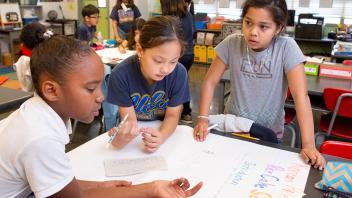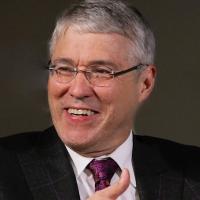Q: I’m a music education professor and music literacy is an area of research for me. I am intrigued by your work on disciplinary literacy and my colleague and I are interested in determining how disciplinary literacy could be applied to music. I’ve searched, but have found no research in this regard. Do you know of any? Also, I would love to hear your opinions regarding directions we could take as we look into this subject further. As of now, we see a need to look at music notation literacy as well as the literacy associated with writing about music. Further, we see four types of musical thinking that may use music and language differently — creating, responding, performing, and connecting. Needless to say, things are getting complicated. We would love any input you could give!
A: I hope it doesn’t bother you to much that you are asking this of someone who can’t carry a tune in a bucket. Like you, I know of no research on music literacy. Certainly, there is musical notation and that may or may not have a place in your program depending on your focus. However, for the purpose of this discussion, let’s just focus on English prose (teaching musical thinking makes great sense to me, but I wouldn’t be the guy to go to for that unless off-key humming is prominent in the scheme).
Although there is not research on music, or on many sub-disciplines and specializations, that doesn’t mean we have nothing to proceed on. With music, I think there are at least three possible directions that could be taken — and I’d recommend all three.
First, some music programs focus heavily on the science of tonality and other aural phenomena. That means scientific or technical texts make sense and those kinds of material need to be read very much like science. We do know something about science reading and that would be relevant here.
Second, some music programs emphasize musical history — exploring the relationship between music and various historical eras, and considering how music was created or which instruments were used and how and why that changed over time. This kind of material definitely should be read in the same fashion as other historical materials. Look at what we know about the reading of history.
Third, some music programs pay at least some attention to musical appreciation and critique. How does one analyze and evaluate a piece of music. What are the criteria for evaluation and the language of such musical criticism? This requires reading akin to what students might be expected to take on in a literature program (though, in fairness, I know of no studies of the reading or writing of criticism, per se).
I guess what I’m saying is that some fields draw from one ore more disciplines and that means their reading and writing experience will be similar to the reading and writing routines, language, and insights of those related to those fields. I think that is something to be candid about with students: musical scholarship requires the ability to handle technical materials like a scientist, historical materials like a historian, and criticism in the fashion of a music critic; and students would necessarily have to recognize the diversity of those demands and adjust accordingly.
I would say the same thing for social studies (history, geography, economics, culture) and science (biology, chemistry, physics, but also subspecialties like botany). The readers in those fields need to be able to shift their routines depending on the nature of the problems and the texts.
Reading and writing demands can also vary within a field of study across various kinds of goals or purposes. That’s the situation in music, I think. Not all reading purposes require the same processes or combination of processes, so you need to pay attention to the routines and approaches you and your colleagues use in their work (and how to reveal those to students
_________________________________________________
To learn more about teaching and assessing reading, writing and literacy, visit Dr. Shanahan’s blog .
About the Author
Literacy expert Timothy Shanahan shares best practices for teaching reading and writing. Dr. Shanahan is an internationally recognized professor of urban education and reading researcher who has extensive experience with children in inner-city schools and children with special needs. All posts are reprinted with permission from Shanahan on Literacy .

